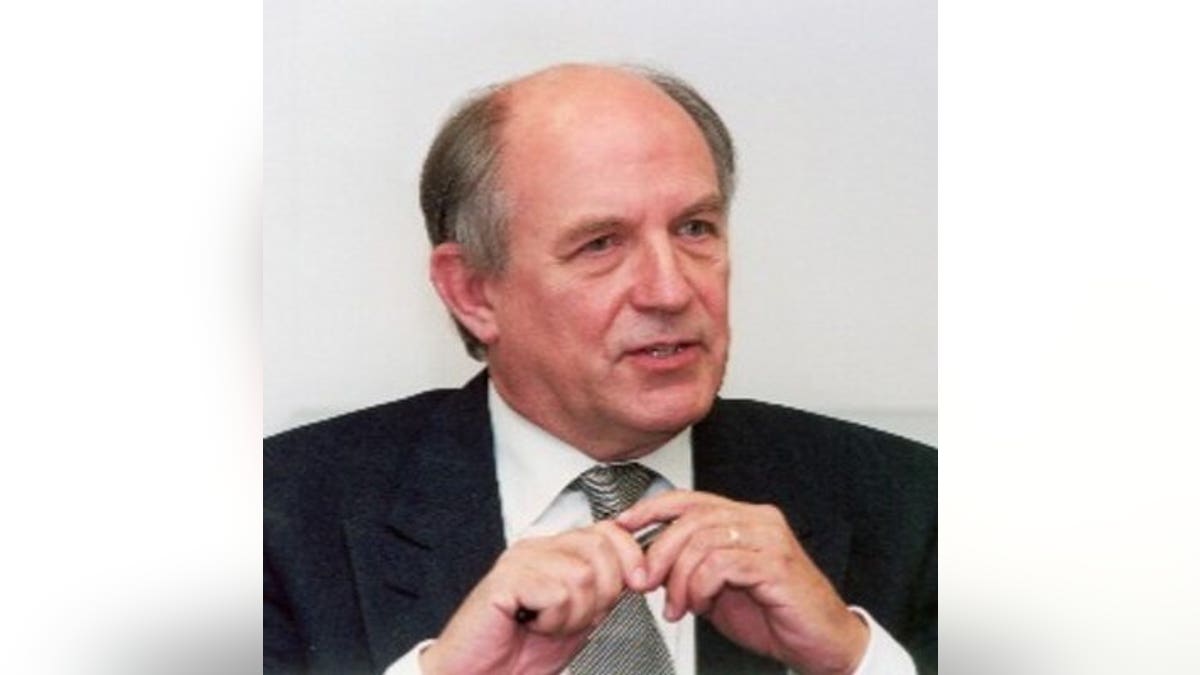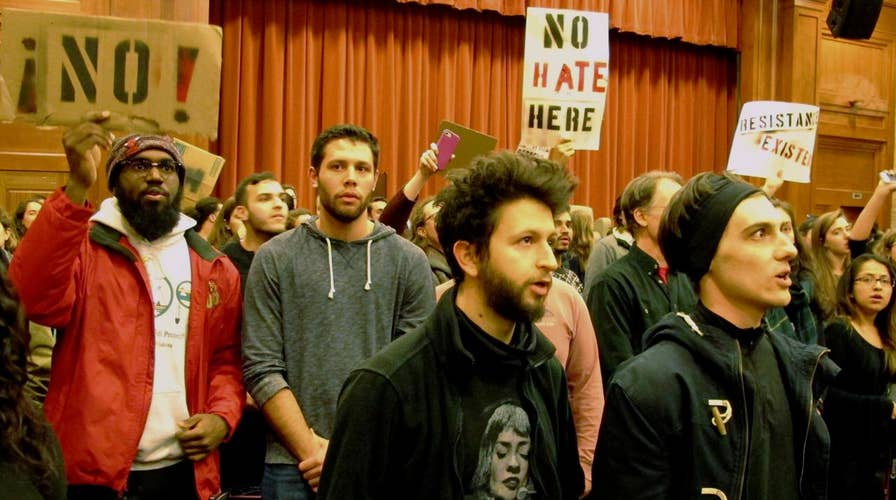Protesters confront scholar at Middlebury College
Students oppose Charles Murray lecture; 'The O'Reilly Factor' investigates
The recent wave of protests – sometimes violent – at U.S. colleges and universities that have forced the cancellation of conservative speakers’ lectures take place predominantly at liberal schools, many of whose students are progressive and come from wealthy families, the Brookings Institute said in a new study.
The analysis of who on these campuses is making it increasingly difficult to invite conservatives comes shortly after a disturbing such instance at Middlebury College. Earlier this month, controversial libertarian social scientist Charles Murray arrived at the Vermont campus to deliver a guest lecture. But the intensity of the student protests forced Murray and those who had invited him to move to a different section of the campus to continue.
However, student protesters disrupted that venue, too. When a Middlebury faculty member attempted – for Murray’s physical safety -- to escort Murray to a vehicle, a student mob physically attacked them.
After a struggle, which left the faculty member injured, they were able to get inside a vehicle, at which point students began battering the vehicle and jumping on top of it.
Middlebury is not an isolated incident. A study from the nonpartisan Foundation for Individual Rights in Education found that the number of reported disinvitations and demands that speakers be disinvited has skyrocketed in recent years — from six in 2000 to 43 in 2016.
Those who predominantly engage in such violent protests generally fit an identifiable demographic profile, according to the study by the Brookings Institute’s Center on Children and Families. The analysis found that it is predominantly upscale students from liberal institutions who are demonstrating illiberal values by protesting, and at times rioting, to force their schools to disinvite or cancel events featuring conservative thinkers.

Controversial libertarian social scientist Charles Murray was met by angry protesters when he tried to speak at Middlebury College.
Since 2014, at the 90 or so colleges that have tried to disinvite conservatives from speaking, the average student comes from a family with an annual income $32,000 higher than that of the overall average student in America, the Brookings study found.
“It seems likely that many of the students most offended by the likes of Charles Murray come from the wealthiest families and attend the most expensive universities in the country,” wrote Richard V. Reeves, a senior fellow of economic studies at Brookings. “After all, when Murray spoke at Saint Louis University, where the median income of students’ families is half Middlebury’s, he was received respectfully, with some silent, peaceful protests.”
One of the names that appears most frequently on the disinvitation list is former Breitbart editor and controversial public speaker Milo Yiannopoulos.
“The quintessentially liberal commitment to free and open dialogue is indispensable for building mutual understanding and respect in a diverse society,” Reeves wrote. “The spectacle of rich, ‘progressive’ protesters refusing to hear a lecture on the roots of their own privilege; well, it tells you how much work there is to do.”
Earlier this year, students -- and members of the anarchist movement Black Bloc -- disrupted a planned speech by Yiannopoulos at the University of California, Berkeley by hurling smoke bombs, breaking windows and starting a bonfire outside the student union where he was to appear.
"No one’s safety is at risk from different opinions," Yiannopoulos told "Tucker Carlson Tonight" in a phone interview. "No one’s physical safety is endangered by political ideas from a speaker on campus, but universities have sort of allowed this stuff to happen, and even in some cases encouraged it."
A day after the Berkeley riots another chaotic protest occurred at New York University where at least 11 people were arrested after the conservative speaker and Vice Media co-founder Gavin McInnes was hit with pepper spray. The raucous crowd appeared outside NYU's Kimmel, Rosenthal Pavilion in New York City, protesting McInnes' planned speech at a seminar for college Republicans.










































